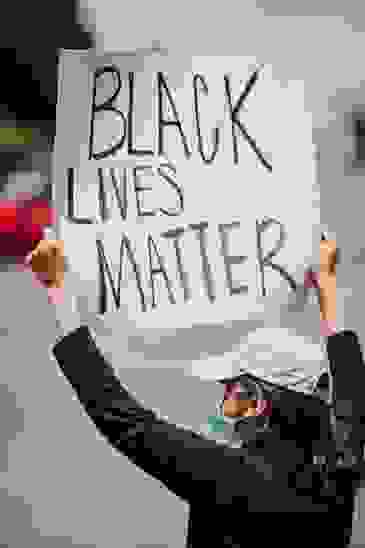
Turning Words Into Action: Marketing and Social Movements
May 5th, 2021 by Stephanie WarnerWe are now well into a new year and can start to look at 2020 in the rearview mirror. Many of us will probably even take stock of how the last year has changed our lives, the culture, and the world around us. Obviously, the global pandemic will always be the major defining event of 2020 — yet the social unrest in the United States particularly — will not quickly be forgotten either. For many of us, the social movements are intertwined with our 2020 experience. As social awareness and activism in our daily lives increased, it was hard not to notice that consumer marketing and the brands behind it followed suit. Unlike no other time in recent memory, an overwhelming number of brands and companies publicly showed support for the prominent social movements and vocalized this support through social media, ad campaigns, some even making major commitments for change.
Brands and Social Movements in the Past
Let’s look at the history of brands using cause-related marketing or social activism to promote themselves. “Cause marketing” as it has been called, refers to promotional activities in which a for-profit business ties itself to a non-profit organization for mutual benefit. This type of marketing gained popularity in the 1980s when American Express partnered to raise money to support the Statue of Liberty restoration project. Then in 2006 (RED), the Bono and Bobby Shriver founded organization launched and was built entirely around partnering with products and brands to reach the goal of ending AIDS. In this case, the act of buying products such as a (RED) t-shirt from the GAP, or a (RED) Apple iPhone to participate in the fight against AIDS was coined with the new term of “commodity activism” in a book by the same name. Brands found success by aligning themselves to these social causes, and so today it can seem hard to find a major brand campaign that is not driven by cause marketing or tied to some form of commodity activism.

The Trend: Consumers Expect Brand Activism
The rise of cause-related marketing has also aligned with this precise moment in history. Right now, you could argue that social activism plays a very prevalent part of our everyday lives, particularly fueled by social media. And so the influx of brands championing a cause, social or political movement, is most likely driven by our own expectations as consumers. A recent survey by Sprout Social also supports this by showing that 70% of consumers expect brands to take a stand. And so it’s not surprising that the majority of brands and companies we engage with are being more and more vocal on social issues. In the past year, the expectation has been for brands to take a stand on social media, issue statements from their leadership, and inform their advertising decisions based on a cause or cultural moment. But the effectiveness of the company using their platform to demonstrate their support can vary greatly. Today savvy consumers expect the brands they engage with to align with their own values — through real actions and not just words.
Example of Brands Supporting Real World Causes
Over the past two decades (or more), one of the most familiar marketing campaigns to align with a major social movement in the U.S., has been the focus on Pride month and the LGBTQ community. Throughout the month of June, both around the U.S., and in many major global cities there are parades, events, and ceremonies to celebrate and recognize the diverse LGBTQ community. Many companies have aligned themselves to LGBTQ causes by producing Pride-inspired products and merchandise, displaying rainbow-colored marketing, and promoting themselves as supporters of LGBTQ rights. This is also a great example of commodity activism. What brands need to be aware of however, is that they don’t tie themselves to a cause simply for the revenue opportunity. Consumers expect their favorite brands not only to vocalize support but to actually align their business practices with the cause as well, anything to the contrary comes off as disingenuous. In the case of supporting the LGBTQ community, this shouldn’t happen once a year, LGBTQ support must be comprehensive, with inclusive messaging, a diverse workforce, LGBTQ-friendly corporate policies, and above all, be practiced year-round.

The most recent example looks at how the Black Lives Matter (BLM) movement made headlines and fueled conversation both in the traditional news media and across social media last year. As social unrest erupted in the midst of the recent killings of George Floyd and Breonna Taylor (to name only a few of the black lives lost in recent years), the general public took to social media, the internet, and the streets to make their voices heard. In an effort to stay in the conversation – and to meet the expectations of consumers – many major brands and companies decided to take a stand and voice their support for Black Lives Matter.
Of course, vocal support did not happen overnight. The Black Lives Matters movement started in 2013 and unfortunately, the horrible incidents of police brutality towards people of color continued until the BLM movement moved to the forefront of today’s public consciousness. Initially, most brands did not address the Black Lives Matter movement — rather they did their best just to avoid the issue. One of the most notable brands to take a stand was Nike with their 2018 campaign featuring Colin Kaepernick after he began to kneel in protest of police brutality during the national anthem before NFL games. Brands didn’t completely ignore support for black lives, but preferred to focus on more established events such as Black History Month in the U.S. During this month companies and brands might use their social media to highlight black employees or speak up about their support to Black Americans, but in a manner they believed was less controversial. Finally, the social-media driven event called “Blackout Tuesday”, proved to be the tipping point. Remember all the black boxes on your social feed? On June 2, 2020, an overwhelming number of companies agreed to come together to show their support for the Black Lives Matter movement. Participating companies abstained from normal social media and promotions to focus on a message of solidarity for black lives and the Black Lives Matters movement. In addition, many companies pledged publicly to help create change, to fight racism, and take a stand against police brutality.

Brands Need to Turn Words Into Action
We are now over ten months since Blackout Tuesday and the initial wave of racial justice protests. It is curious to see if the brands that spoke out are keeping their promises now. Are the social media and leadership statements being fulfilled? Many organizations promised to stand up against hate and police brutality. They agreed to focus on their workforce diversity by hiring more people of color and reform workplace policies that tolerate racism or systems that leave people of color at a disadvantage. After reading and hearing all of these statements, today’s consumers are now looking for brands to live up to these words. Ad Age has even tracked a variety of brand’s responses to racial injustices with a regularly updated blog. Articles such as this along with ongoing social media discussions are helpful in sending the message that consumers are holding brands accountable to their recent statements.
The result of the challenging past few years is that people are taking a more holistic view of their values, how they spend their money and aligning their wallets with brands that are part of the solution for change and not part of the problem. The public is no longer just looking for brands to celebrate a cause for one-off promotions when it benefits them financially. The expectations have changed. Just as consumers are using their own social platforms, we are asking our favorite brands to be vocal in social issues and take action to help drive change for good too.
